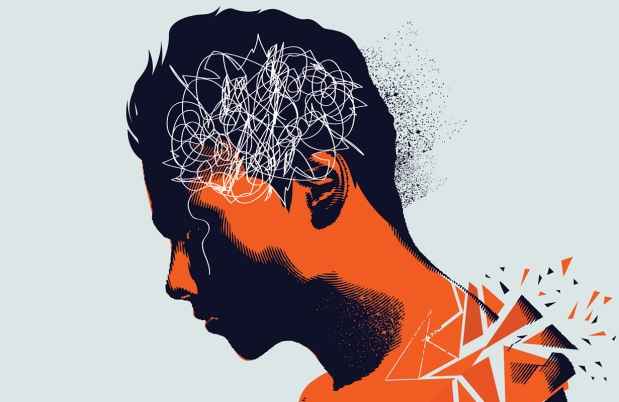Bringing McLean’s Deconstructing Stigma Work to the Middle East
January 26, 2024
Stuart Katz’s job literally takes him around the world. “Between 15 and 22 countries annually, I visited 22 in 2022,” said the CEO of New York-based TAL Tours. But in addition to checking out hotel and tourist amenities, Katz added another topic to his itineraries after a family member received care at McLean Hospital.
“In just about every country I visit, I try to familiarize myself with the mental health situation,” he said. “Mental health is either really bad or really good. But rarely is it anywhere in between.”
This includes Israel, where Katz has made his home for nearly 13 years. The Middle East nation’s history has produced what he calls a “macho” national personality that is reticent about mental health.
“Israelis are macho,” Katz said, explaining that the actual Hebrew word more closely translates to hero.
“The real hero is the one who’s going to speak up about their mental health, their mental illness, and their mental well-being. The real heroes are not only the ones flexing muscles and on the front lines of war. The real heroes are also on the front line of mental health and speaking up. ‘I’m living with depression. I’m anxious. I have OCD. I have an eating disorder.’ Those people are real heroes too.”
Katz sees similar challenges around mental health concerns among his Arab neighbors, especially when it comes to the perception of stigma surrounding getting care.
“We see a lot of similarities in mental health stigma in Israel and in the Arab world. And we can combat it together. We have a responsibility to combat it. That’s the war we should fight, not each other.”

Stuart Katz, a member of McLean’s Board of Visitors, was instrumental in bringing Deconstructing Stigma to Israel
Katz’s weapon of choice is Deconstructing Stigma, McLean Hospital’s international public awareness program, launched in 2016. An exhibit in Boston’s Logan Airport caught his eye and led to an Israeli campaign that debuted in November 2022.
A joint effort launched in 2020 between McLean and the Jerusalem College of Technology (JCT), the Israeli Deconstructing Stigma campaign is currently on display on three Jerusalem campuses with a goal of expanding to other parts of Israel and perhaps even beyond.
The campaign uses a series of larger-than-life photographs and interviews to debunk misconceptions about those who live with mental illness, including the complexities surrounding seeking treatment, navigating insurance and health care systems, and facing stigma.
Katz said that change needs to focus on the “kugel or casserole phenomenon.”
“When someone is diagnosed with cancer, friends and neighbors show up at their doorstep with cakes, casseroles, and kugels. When someone’s living with depression, you do not see the same kind of support. People will call and text, but they don’t actually acknowledge that you’re not feeling well because of depression or another mental illness. It’s always left ambiguous, as if people are scared that if you use the word, it will be contagious. We have to overcome that by talking about it.
“I think meds and psychiatrists are excellent,” he said. “But you can’t treat mental health conditions properly without family and community support. That’s why projects like Deconstructing Stigma and other educational projects and initiatives are crucial.”

A study looking at attitudes six months after a 2015 mental health reform effort in Israel found most individuals were still uncomfortable seeking referrals through the public health system, with Arab Israelis having lower levels of comfort in seeking mental health care than Jewish Israelis.
A more recent study found only 13% of respondents said they would seek professional treatment if they felt anxious or tense but would seek help immediately if they felt they were in crisis due to a “severe” psychiatric illness.
These attitudes are not limited to the Middle East nor to members of the general public, Katz said, citing a January trip to Guatemala.
“I found the stigma not only in the community when speaking with individuals on the street, but from the psychiatrists themselves. This isn’t unique to Guatemala. I’ve been told over and over that mental health stigma can’t change because the people aren’t ready to change. The reality in so many countries is medical professionals aren’t ready for change.”
The answer, Katz said, is more education, in Israel and elsewhere.
“When Israel makes up its mind that mental health is going to be a priority, they’re going to be number one in the world,” said Katz. “But they haven’t made up their mind yet.”
In addition to being a partner in bringing Deconstructing Stigma to Israel, Katz is an active member of the McLean Board of Visitors, a group dedicated to being mental health ambassadors.
Deconstructing Stigma is produced by McLean’s Education Outreach team, which is supported through philanthropic gifts.
To learn how you can support this work, visit mclean.org/give or call 617.855.2191.
Media Requests
Journalist or member of the media? We are available 24/7 for media requests.



